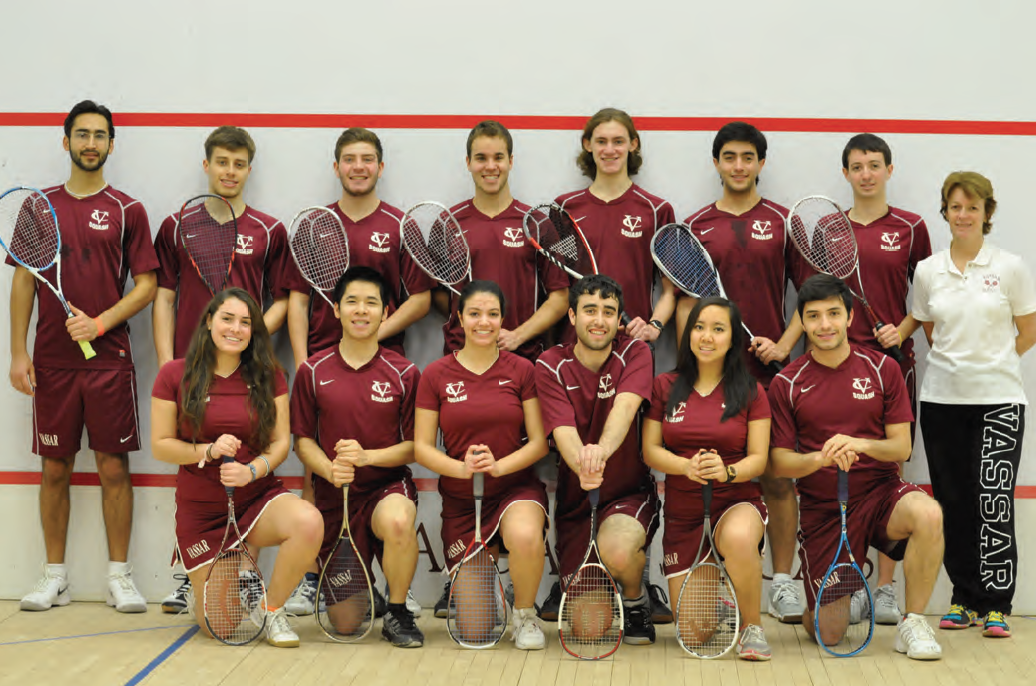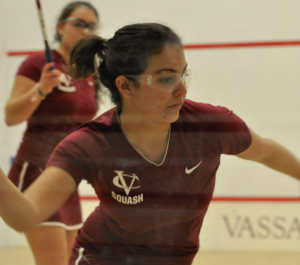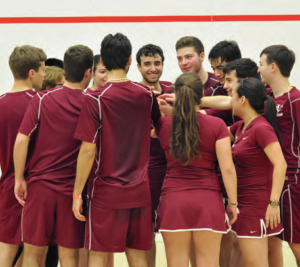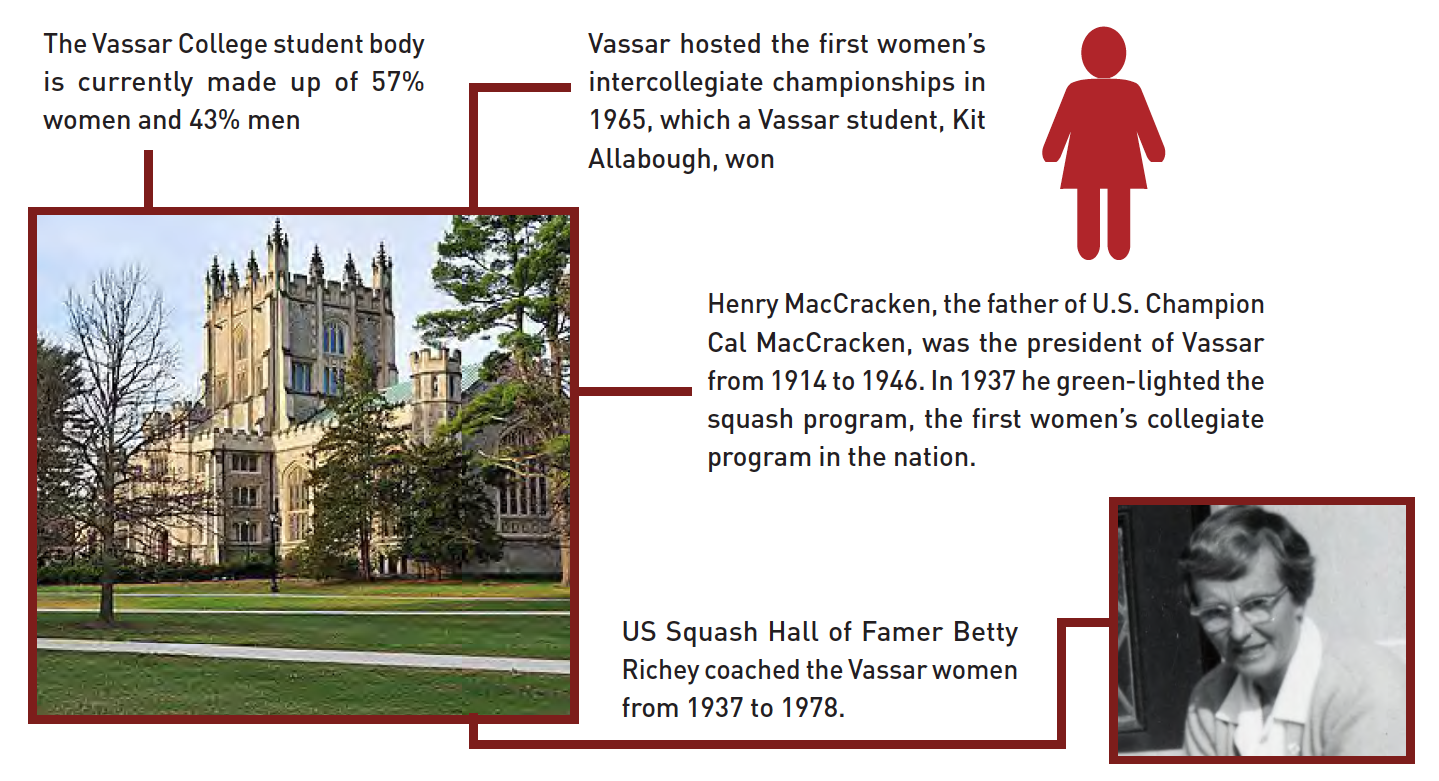
By Bill Buckingham
In 1969, Vassar College declined an offer from Yale University to merge institutions. Instead it became the first and only of the original “Seven Sister” schools to become co-ed (Radcliffe was later absorbed by Harvard University). Forty four years later, head coach Jane Parker, forced by circumstances beyond her control, followed suit, announcing that the squash program at Vassar, for this season anyway, will merge the men and women to form one team.
 Parker, entering her fourteenth season as head coach, had lost six senior women to graduation with another four going abroad this year. With only four women available, and the status of off and on campus recruits unknown, she had to make the call. “Based on past experience we typically only get two or three women through the PE program and, with our first match in November, we had to put a schedule together. Because woman are allowed to play on a men’s team, we decided to go co-ed, with the goal of rebuilding the women’s team next year.”
Parker, entering her fourteenth season as head coach, had lost six senior women to graduation with another four going abroad this year. With only four women available, and the status of off and on campus recruits unknown, she had to make the call. “Based on past experience we typically only get two or three women through the PE program and, with our first match in November, we had to put a schedule together. Because woman are allowed to play on a men’s team, we decided to go co-ed, with the goal of rebuilding the women’s team next year.”
Parker, who was ranked as high as 34th in the world, had some experience playing coed squash in her native England. “I also did some research and, coupled with my experience, saw that, in squash, women are better in some things while men are better in others. I really think the women are more cunning and accurate while the men run faster and hit the ball harder. Parker also solicited opinions from her players and says that, “Once I explained the benefits, players on both teams were happy to give it a try and have really bought in to the concept.”
Co-ed practices have had a positive effect according to Parker: “Everyone is really enthusiastic and the work ethic this season has been fantastic.”
 When asked about the dynamic of women going head to head in challenge matches with the men, Parker said she doesn’t see any difference. “It doesn’t seem to matter. If it’s a tight match that’s good, if it’s a blowout someone is not going to be happy. Every dog has its day. The key is to focus on what you do well and work on what you did poorly, same with any match.”
When asked about the dynamic of women going head to head in challenge matches with the men, Parker said she doesn’t see any difference. “It doesn’t seem to matter. If it’s a tight match that’s good, if it’s a blowout someone is not going to be happy. Every dog has its day. The key is to focus on what you do well and work on what you did poorly, same with any match.”
Parker credits co-captains Ricardo Espinosa and Kiet Phun with making the merger a smooth one. Espinosa, a walk on from Ecuador who is returning to Vassar after a year abroad and Phun, a senior from Nebraska, who has moved up from beginner squash classes to captain the squad, have fostered a unified environment. “In practice, there is no difference between the men and the women, and off the court they socialize, going to dinner together, and the communication is so much more improved this year. I credit the captains for setting the standard,” says Parker.
Parker also says that the students and administration have been very supportive of the move and, although they have been bitten by the injury bug, with top recruit Vincent Mencotti and sophomore Daniel Doctor going down with early season knee injuries, two freshmen women, Carly Scher of Pennsylvania and Isabelle Bertram from Utah, have stepped up to take regular spots in the top nine. Despite the injuries, Parker says, “I’m seeing that playing together is getting everyone, as a group, stronger and smarter. We will certainly do the best we can with what we have this season.


